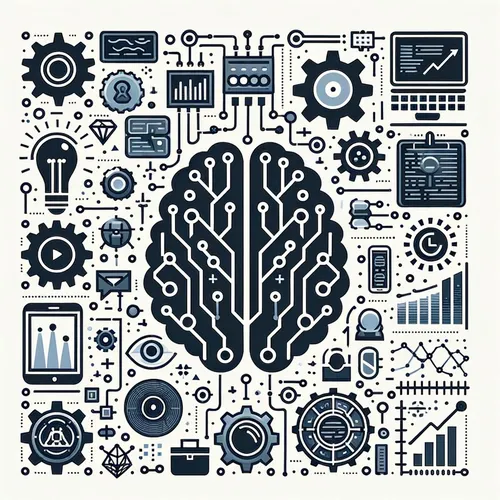Shh! AI's Juicy Secrets: Transforming Biz, Boosting Profits, and Stealing Hearts!
- Author
- Quiet. Please
- Published
- Sun 13 Apr 2025
- Episode Link
- https://www.spreaker.com/episode/shh-ai-s-juicy-secrets-transforming-biz-boosting-profits-and-stealing-hearts--65555398
This is you Applied AI Daily: Machine Learning & Business Applications podcast.
In today’s rapidly evolving technological landscape, applied artificial intelligence is transforming the way businesses operate, innovate, and compete. One area seeing remarkable growth is predictive analytics. Using machine learning algorithms, businesses are mining vast datasets to uncover patterns and generate actionable insights. This approach enables industries such as retail and healthcare to predict consumer behavior and optimize inventory or treatment plans. A practical example can be found in logistics, where predictive tools are employed to streamline inventory management, reducing costs and improving delivery timelines. Companies integrating these tools report significant return on investment through process efficiencies and enhanced decision-making capabilities.
In natural language processing, AI is tackling challenges such as automating customer service through chatbots and creating intelligent search systems. Amazon Kendra, for instance, uses machine learning to transform document processing, enabling streamlined operations like loan underwriting and invoice management. Meanwhile, recommendation engines, famously used by services like Netflix, leverage user data to personalize content delivery, driving stronger engagement and customer retention. Such implementations underscore the importance of tailoring AI solutions to specific business goals.
On the cutting edge of computer vision, companies like Shell are deploying AI to enhance safety standards. Through video analytics powered by cloud solutions, Shell’s systems detect unsafe behaviors at service stations in real time, reducing risks while automating previously manual tasks. This illustrates how AI applications are not only improving operational efficiency but also providing a safer working environment, showcasing a direct impact on both performance metrics and compliance adherence.
A recent case study from Macquarie Bank highlights a successful implementation of generative AI to unify and clean 100 percent of data assets, removing bottlenecks and enabling more effective analytics. Similarly, the fintech company Airwallex leverages AI for real-time fraud detection, scaling globally with robust security measures. Both examples emphasize the growing importance of seamless integration with existing systems, a common challenge businesses must address to maximize AI’s potential. Key strategies include leveraging scalable platforms like Google Vertex AI and ensuring cross-functional collaboration between IT and business units.
With the global artificial intelligence market projected to exceed $800 billion by 2030, the incorporation of AI into core strategies is becoming indispensable. Businesses that embrace AI-driven decision intelligence will lead in agility, responsiveness, and customer satisfaction. Looking ahead, the focus will shift toward democratizing advanced AI tools, enabling even small enterprises to harness the technology’s power. By prioritizing practical implementation strategies today, organizations can position themselves for long-term success in the competitive AI-driven economy.
For more http://www.quietplease.ai
Get the best deals https://amzn.to/3ODvOta
